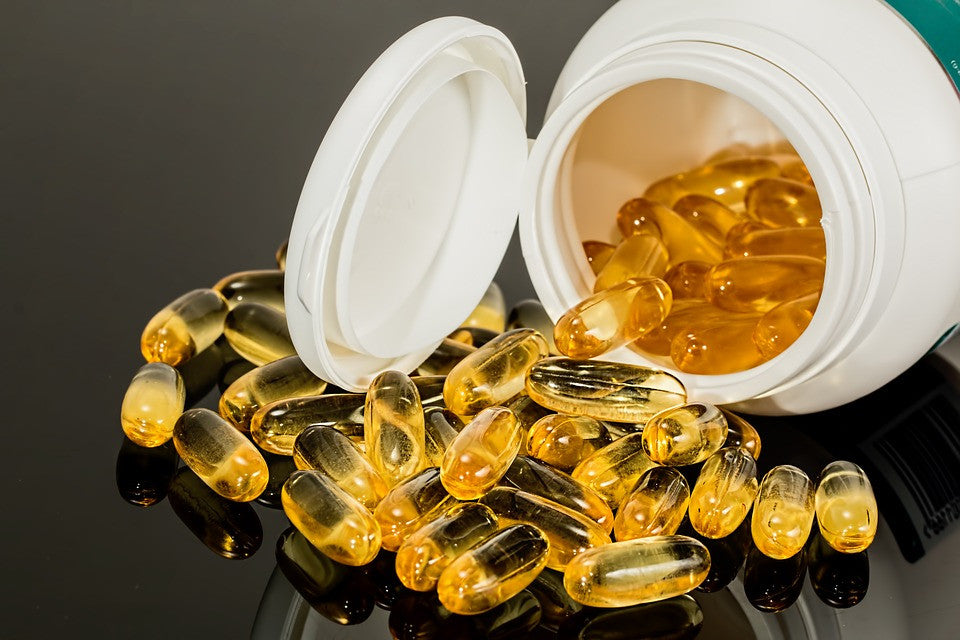Fibro Fix Blog — CoQ10 and exercise

CoQ10 & Exercise - What You Need to Know 0
Find yourself laying on the couch with an ice pack or heating pad after an intense workout?
Feel like a heavy lifting session leaves you so sore you’re out of commission for days?
Maybe you’ve lost some pep in your step, and can’t seem to muster the energy to participate in your favorite physical activities as often as you’d like.
Appropriately scaling the frequency and intensity of exercise is the place to start, but there are nutritional supplements that might offer some benefit when it comes to energy levels, athletic performance, and recovery from exercise. One such nutrient is coenzyme Q10, usually just called CoQ10.
Another name for CoQ10—ubiquinone—gives us an idea of just how important a compound it is, and how commonly it’s found in living organisms. It is “ubiquitous,” since it’s found in almost all cell membranes and many other structural components of the body. CoQ10 is a fat-soluble compound synthesized inside the body through the same biochemical pathway used for the internal production of cholesterol. Since the body can make CoQ10, it’s not an “essential” nutrient, but, as is the case with many vitamins and minerals, supplemental amounts can be beneficial for giving the body a leg up when it comes to performing certain tasks.
Dietary sources highest in CoQ10 are animal proteins (beef, poultry, and fish), with smaller amounts occurring in nuts and seeds, and even smaller amounts found in some vegetables and fruits. Among animal sources of CoQ10, the richest concentrations occur in hardworking tissue, such as heart, liver, and kidney. (Maybe eat some offal now and then! Offal isn’t awful; it’s extremely nutritious!)
The most well-known function of CoQ10 is as a required element for energy production at a cellular level. Inside almost all of your cells (except red blood cells and a few others), energy is produced in microscopic generators, known as mitochondria. Perhaps you remember the term “electron transport chain” from high school biology or a biochem class. The electron transport chain is how cellular energy is created, and CoQ10 is a vital component of the process.
Because of CoQ10’s role in generating energy, supplemental amounts might give athletes a slight performance edge. Studies that looked at both athletically untrained and well-trained individuals reported mixed results regarding the effect of CoQ10 on physical performance. Some studies showed an increase in exercise capacity and oxygen consumption, while others showed no benefit. Additional studies demonstrated CoQ10 as being beneficial for reducing subjective feelings of fatigue, which might help an athlete—or even a weekend warrior—work harder or longer at their chosen activity.
The place where CoQ10 seems to have a more powerful effect is in limiting the cellular damage caused by exercise, and therefore, possibly leading to better recovery. Of course, exercise is a good thing, and regular physical activity is absolutely part of a healthy lifestyle. But, don’t forget that it’s also stressful! It’s not stressful in the way that sitting in a traffic jam is. It’s stressful on a cellular level. Exercise causes microscopic tears and damage to muscle fibers. In fact, this is the whole point of exercise: induce a small amount damage, and it is in recovering from this low-level damage that the muscles actually become stronger.
However, too much of this microscopic injury, without the right nutrients to help limit it, can lead to muscle pain, inflammation, and to more serious health conditions that may result from long-term, unresolved oxidative stress in the body. The good news is, CoQ10 has been proven effective for significantly reducing oxidative stress and inflammation induced by strenuous exercise, and also for reducing markers of damage to muscle tissue.
Bottom line: if you’re currently a couch potato, CoQ10 isn’t going to turn you into an Olympic medalist. But, by decreasing the cellular damage caused by exercise, and reducing feelings of fatigue, it might help you engage more frequently in physical activities you enjoy, which may contribute to overall improved health.
View my recommended and trusted CoQ10 here.
Sources
- Diaz-Castro J et al. Coenzyme Q(10) supplementation ameliorates inflammatory signaling and oxidative stress associated with strenuous exercise. Eur J Nutr. 2012 Oct;51(7):791-9.
- Mizuno K et al. Antifatigue effects of coenzyme Q10 during physical fatigue. Nutrition. 2008 Apr;24(4):293-9.
- Rosenfeldt F, Hilton D, Pepe S, Krum H. Systematic review of effect of coenzyme Q10 in physical exercise, hypertension and heart failure. Biofactors. 2003;18(1-4):91-100.
- Dr. Brady
- Tags: benefits of CoQ10 CoQ10 CoQ10 and exercise Dr. Brady wellness and prevention
